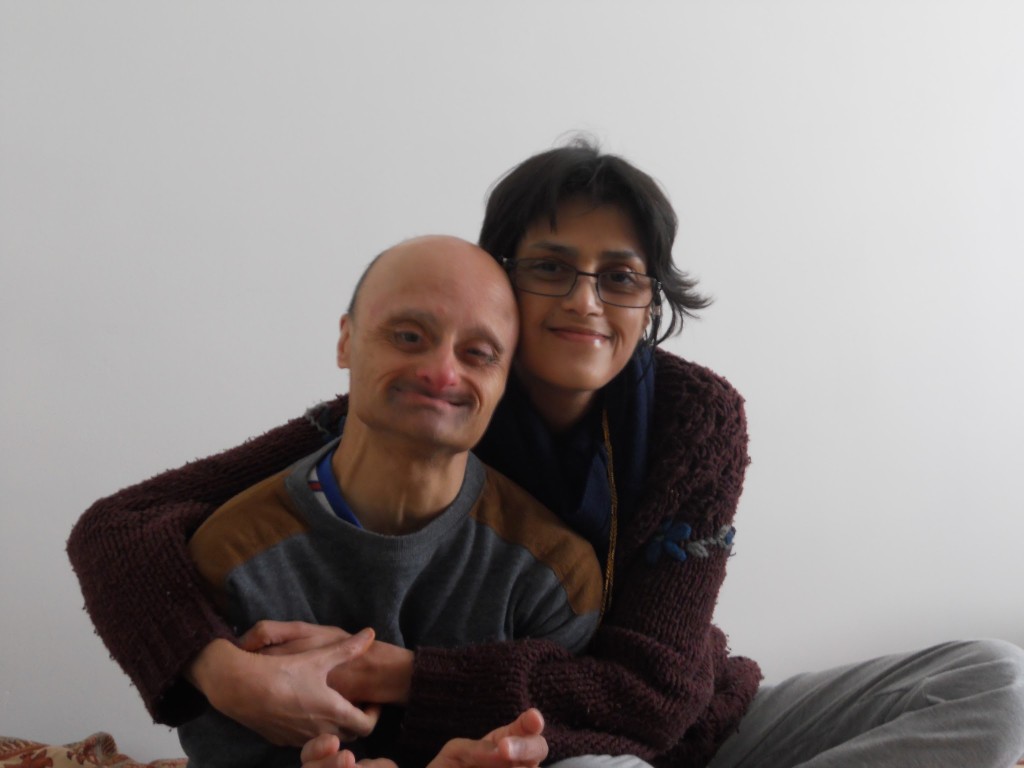
I’m so grateful to Anila Jolly (pictured above, with her brother Sunil) for speaking so frankly about her relationship with her sibling.
As she says, siblings of disabled adults are “largely invisible” to care providers, but their “insight and perspective can be valuable”.
There’s more on these issues in a piece on the Guardian’s social care network today; 1.7 million adults in the UK have grown up with a disabled brother or sister but campaigners say their support needs and caring role are overlooked.
My piece today focuses on the work of Sibs, the UK’s only charity for siblings of children and adults with a lifelong learning disability.
Sibs’ call for greater recognition for this comparatively invisible group is timely given the next tranche of welfare cuts, says its chief executive Monica McCaffrey – “people who don’t have critical or substantial need will have little or no support … siblings will have to ensure people are safe and we want them to have a voice within adult social care.”
In addition, the role of siblings should be seen in the context of Carers Week next week and the are growing calls for families to be fully involved in the care of disabled relatives (take the campaigning LB bill , for example).
You can read more here about siblings’ distinct role and how care providers and commissioners often underestimate their contribution.
